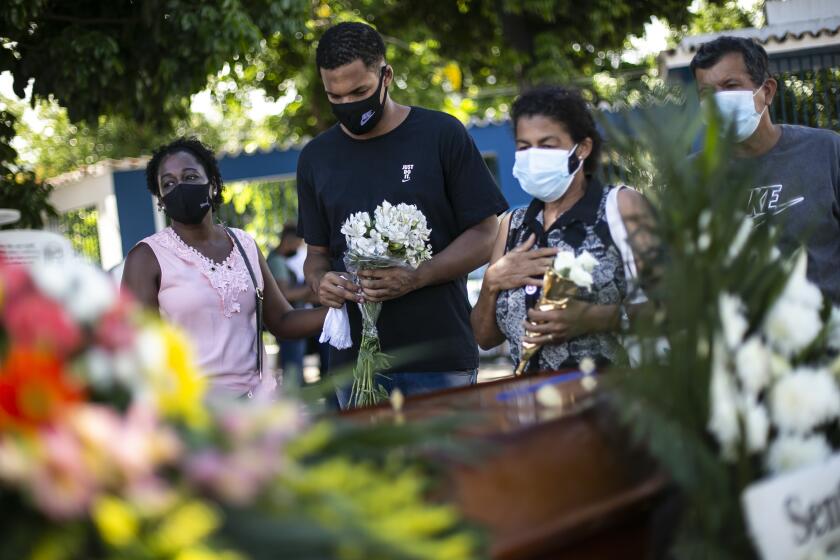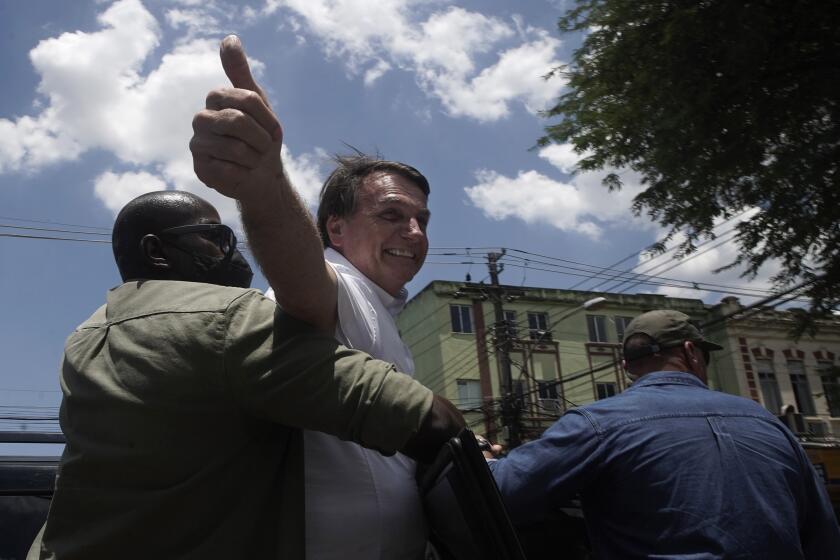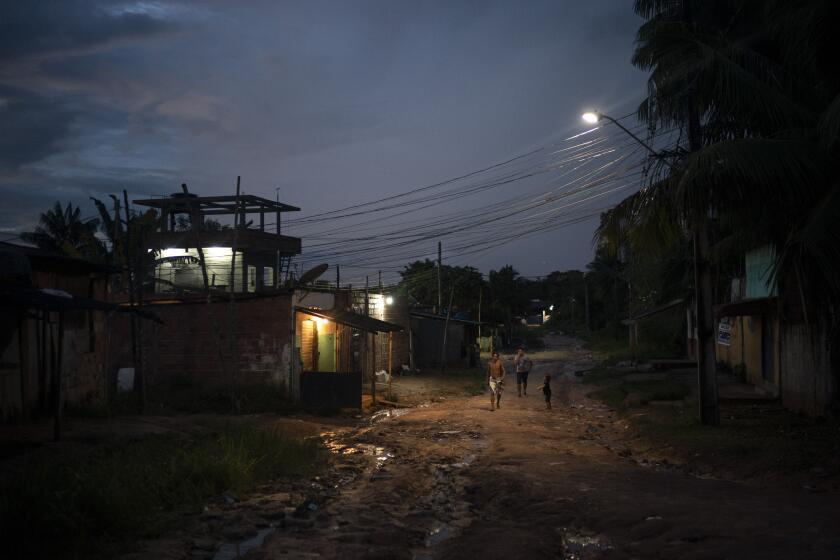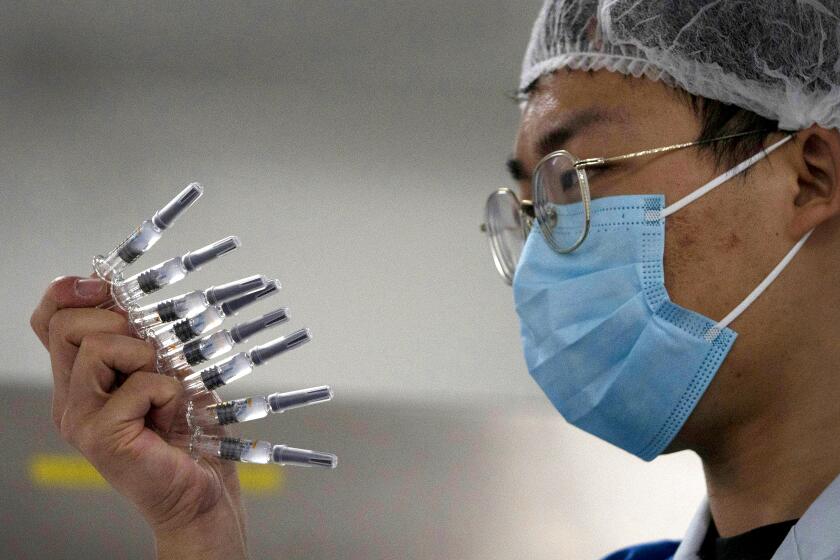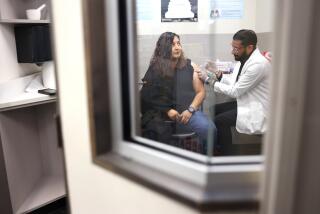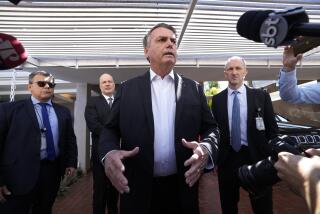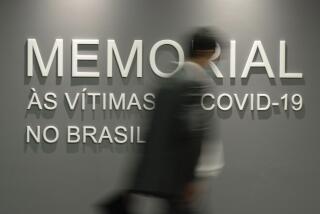After political infighting, Brazil authorizes use of two COVID-19 vaccines
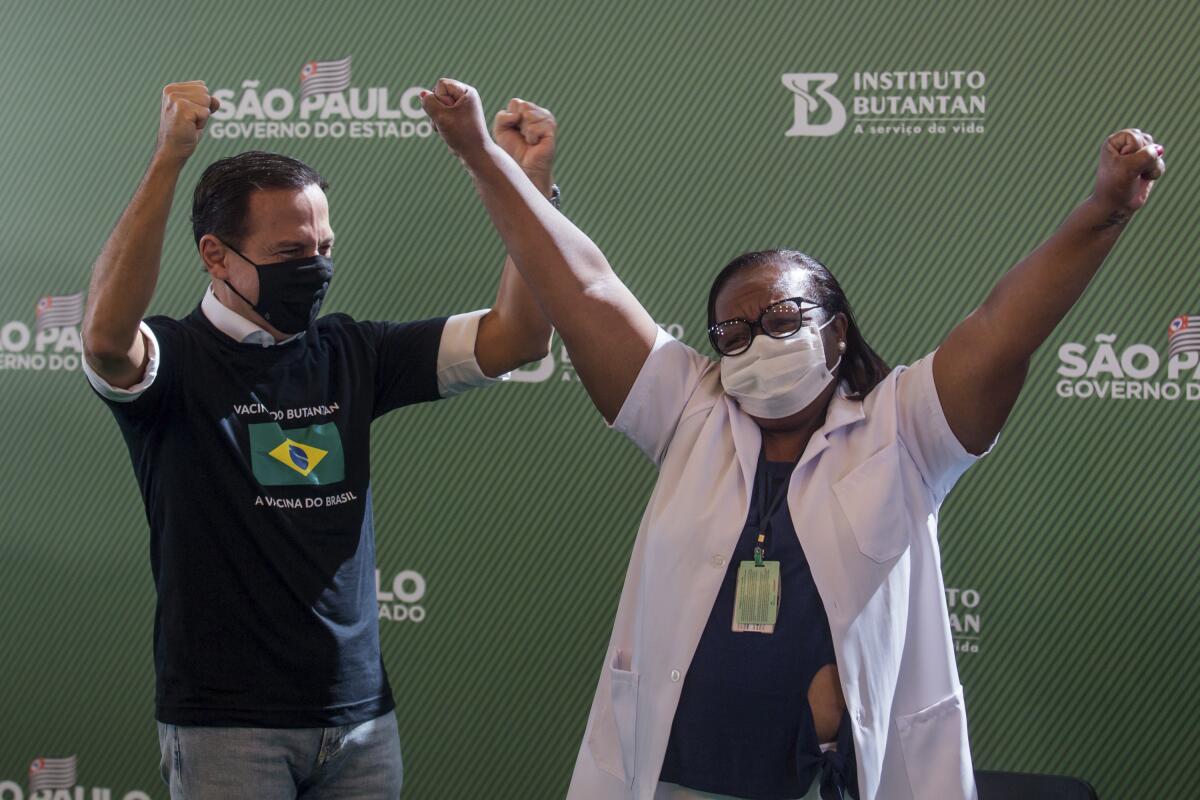
RIO DE JANEIRO — Brazil’s health regulator Sunday approved the urgent use of COVID-19 vaccines made by Sinovac and AstraZeneca, enabling Latin America’s largest nation to begin an immunization program that’s been subject to delay and political disputes.
Brazil currently has 6 million doses of Chinese company Sinovac’s CoronaVac shot ready to distribute in the next few days and is awaiting the arrival of 2 million doses of the vaccine made by British drugmaker AstraZeneca and its partner, Oxford University.
“This is good news for Brazil, but 6 million doses are still very few,” said Ethel Maciel, an epidemiologist at the Federal University of Espirito Santo. “It will not allow the entire population at risk to be fully immunized, nor is it clear how quickly the country will obtain more vaccines.”
Brazil is home to more than 200 million people.
On Saturday night, health regulator Anvisa rejected an application for use of Russian COVID-19 vaccine Sputnik V, submitted by Brazilian company Uniao Quimica. Anvisa said it didn’t evaluate the application because it didn’t meet minimum requirements to start an analysis.
Vaccination in Brazil is beginning later than neighbors such as Argentina and Chile despite a robust public health system and decades of experience with immunization campaigns. The process to present and approve the COVID-19 vaccines was fraught with conflict, as allies of President Jair Bolsonaro sought to cast doubt on the efficacy of the Sinovac shot backed by his political rival, Sao Paulo state Gov. Joao Doria.
Brazilians are once again crowding their beaches and the country is marking a pandemic milestone, second only to the U.S. in COVID-related deaths.
“The rivalry between Brasilia and the state governments prevented any cooperative work,” said Mauricio Santoro, professor of political science at the University of the State of Rio de Janeiro. “The governor lost the leadership position, but made Bolsonaro act more quickly to guarantee the start of vaccination.”
The vaccination priority will be front-line healthcare workers. Vaccination by the federal government will begin Wednesday, Health Minister Eduardo Pazuello said Sunday.
Sao Paulo state started immunizations Sunday after Anvisa’s decision. Monica Calazans, a 54-year-old nurse who works on the coronavirus front line, was vaccinated in a ceremony led by Doria. Calazans had participated in the CoronaVac clinical trial.
As more doses become available, immunization will be extended to others, including the Indigenous population, people over 60 and people with pre-existing diseases, according to the vaccination plan presented by the federal government.
Brazilian President Jair Bolsonaro, who consistently downplays the COVID-19 pandemic, suffered heavy losses in mayoral elections across the country.
The Brazilian government is considering extending the time between the application of first and second doses of the two-shot vaccines in order to reach more people quickly, Health Minister Eduardo Pazuello said in the hard-hit Amazonian city of Manaus on Monday.
Manaus, the first state capital whose health system collapsed in 2020 because of the pandemic, is once again experiencing a critical situation, with a lack of oxygen in some hospitals. Doctors in the Amazon rainforest’s biggest city are having to choose which COVID-19 patients can breathe amid dwindling oxygen stocks.
Hospitals in Manaus, an isolated city of 2.2 million people, have admitted few new COVID-19 patients, causing many to suffer from the disease at home and some to die. Other Brazilian states have offered to receive patients to help relieve Manaus’ health system.
Bolsonaro, who contracted COVID-19 and said in the past that he does not plan to be vaccinated, has raised suspicions of the effectiveness of the Chinese vaccine, which will be produced locally by an institute that depends on the Sao Paulo government. Doria has criticized Bolsonaro’s handling of the pandemic.
The coronavirus is spreading upriver from the Amazonian city of Manaus, in Brazil, into indigenous reserves.
The Sao Paulo government had generated mistrust with a confusing announcement about the results of the CoronaVac vaccine. Doria announced Jan. 7 that its efficacy was 78% for mild COVID-19 and 100% for severe cases. One week later, at a news conference from which the governor was absent, officials from his government said the clinical efficacy of CoronaVac was only about 50%.
Some scientists warn that not enough data have been published about the effectiveness or safety of Sinovac’s vaccine. It has yet to be tested in tens of thousands of people in the kind of rigorous study considered necessary before being licensed for wide use.
Global health authorities have said any vaccine that is at least 50% effective would be useful. Indonesia, China and Bolivia have granted conditional authorization for CoronaVac.
Despite the doubts and skepticism of some Bolsonaro supporters, many people in Brazil hope to get the vaccine.
China has already injected hundreds of thousands of people with COVID-19 vaccines. Vaccines that have not yet completed clinical trials.
“I plan to get vaccinated and my family, too,” said Thiago Salgado, 39, a music teacher.
The government’s goal is to receive at least 354 million vaccine doses by the end of 2021. That would be enough to immunize at least 80% of Brazilians.
Raquel Esteves, a 74-year-old retiree who supports Bolsonaro, lives in Rio de Janeiro and said she was not anxious to get vaccinated, noting questions about the efficacy of the Sinovac vaccine.
“I have been inside my house for a year and a half. I can stay without problems for another two or three months,” said Esteves.
More to Read
Sign up for Essential California
The most important California stories and recommendations in your inbox every morning.
You may occasionally receive promotional content from the Los Angeles Times.
